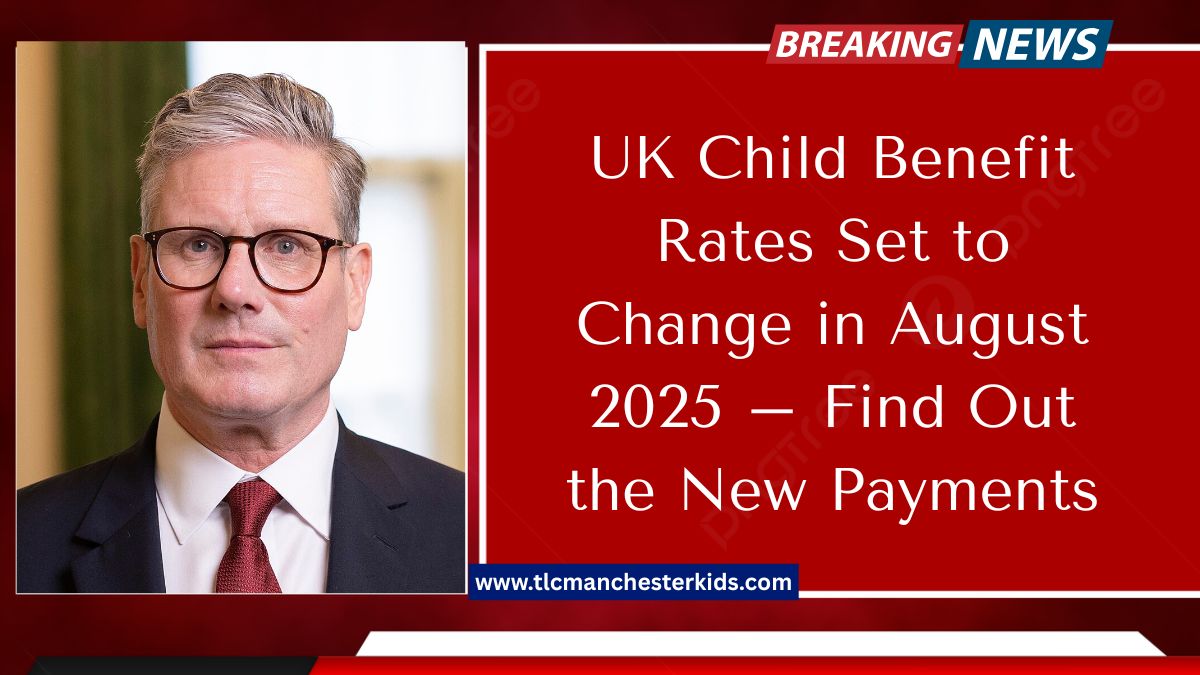From August 2025, families in the United Kingdom will experience an increase in their child benefit payments.
These adjustments, announced by HM Revenue and Customs (HMRC), are designed to help families keep pace with rising living costs, especially due to inflation.
Understanding how these changes will impact your household is essential for planning your monthly budget effectively.
Updated Child Benefit Amounts for 2025
In response to ongoing economic pressures, the government has revised child benefit rates to provide more significant support to low and middle-income families. The new rates for August 2025 are as follows:
- £25.00 for the eldest child
- £16.50 for each additional child
Although the increase may seem modest, it represents a step forward in HMRC’s ongoing effort to ensure child support payments remain relevant and sufficient for families facing rising expenses. For reference, prior to the update, the amounts were £24.00 for the first child and £15.90 for additional children.
Eligibility for the New Child Benefit Rates
The eligibility criteria for child benefit remain unchanged. To qualify, parents or guardians must be responsible for a child under 16 years of age, or under 20 if they are enrolled in approved education or training.
However, income thresholds continue to apply. If a parent’s income exceeds £50,000 annually, they may be subject to the High Income Child Benefit Charge.
This means that the benefit amount received could be reduced depending on household income. It is essential to assess your income to determine how the charge might affect your entitlement.
Preparing for the Child Benefit Changes
As we approach the new rates, it’s important for households to review their current benefit entitlements and assess any changes in income that could affect their eligibility. If you’re new to claiming child benefit, now is the time to familiarize yourself with the process through the official HMRC portal.
For families already receiving payments, the updated amount will be reflected in bank statements beginning the first week of August 2025. It’s a good idea to adjust your monthly budget to account for the increase.
While the boost may not be substantial, it could still alleviate some of the financial strain faced by households with children, especially those managing childcare, schooling, and daily living costs.
Why These Updates Matter
The upcoming child benefit changes are a response to real-world financial pressures, particularly inflation. While the increase might not dramatically alter household finances, it can still offer a valuable buffer for families dealing with rising living expenses such as food, utilities, and school fees.
This update also signals a proactive effort by HMRC to adapt to evolving economic conditions, demonstrating the importance of regular reviews of social support policies. As the demographic landscape and economic factors continue to shift, so must the frameworks supporting families.
The August 2025 child benefit update highlights the UK government’s commitment to supporting families through financial adjustments that reflect the economic realities of today.
Although the increase may not drastically change finances, it will offer much-needed relief to many households. By staying informed about eligibility and preparing for the updated rates, families can better manage their budgets and ensure they receive the full benefit they are entitled to.
FAQs
When will the new child benefit rates take effect?
The updated rates will begin in August 2025. Families should expect the new payments to be reflected in their bank statements from the first week of August.
How do I check my eligibility for the child benefit?
You can check your eligibility and apply for the child benefit via the official HMRC portal. Ensure that your income is below the threshold for the High Income Child Benefit Charge to avoid any reductions.
How much will the child benefit increase by in 2025?
The child benefit for the eldest child will increase to £25.00, while the amount for additional children will rise to £16.50. These changes are part of the government’s ongoing efforts to help families cope with rising living costs.
